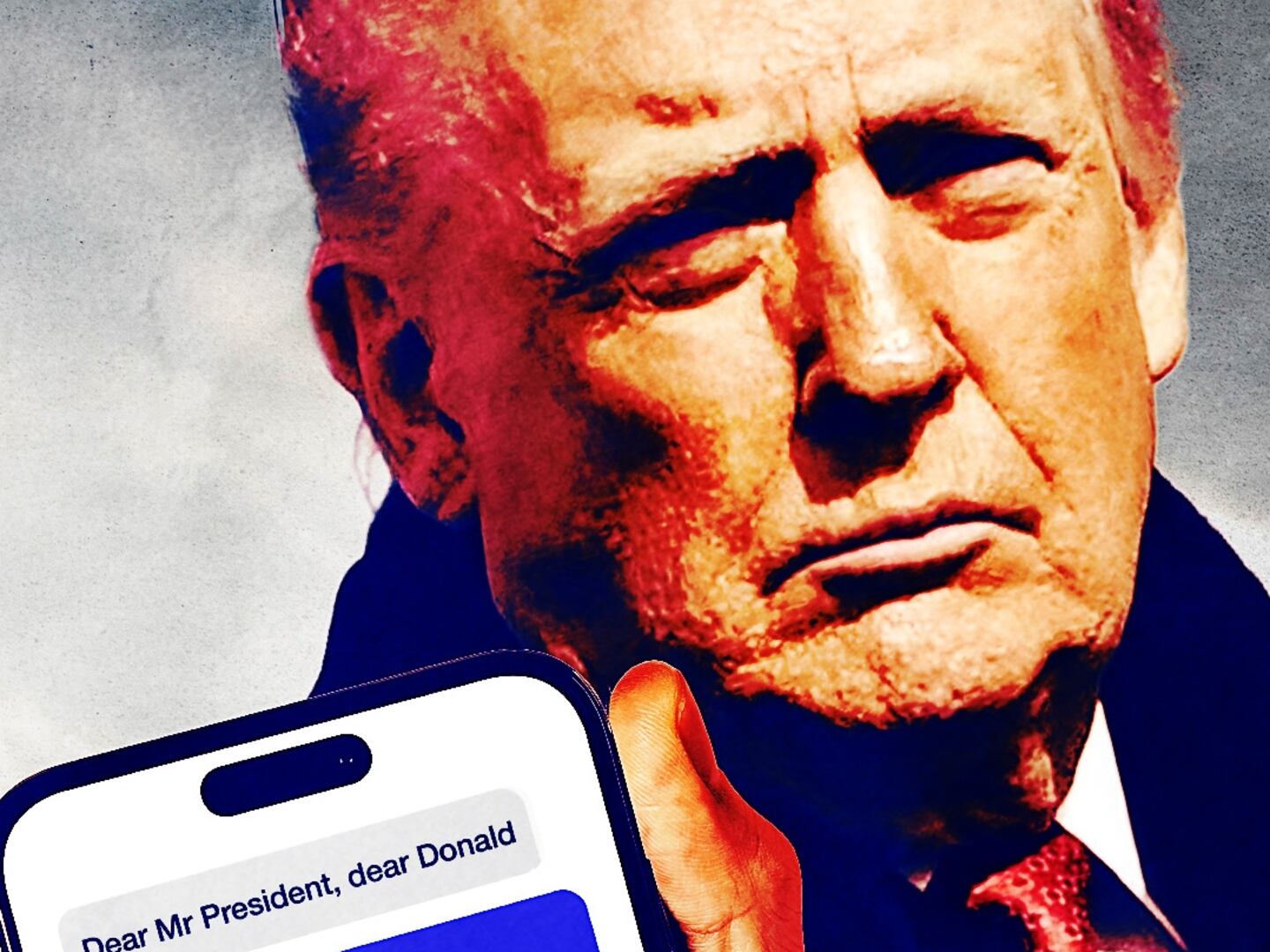As Edward Snowden lams it, his story is morphing from a new-media surveillance scandal into something closer to a classic Cold War thriller. The Snowden saga started off redolent of The Girl With the Dragon Tattoo (computer hacking; manifesto-style sloganeering about justice, rights, and corrupt goverments; and a half-naked dancer girlfriend). But it’s now driving deep into Graham Greene territory as the world’s most famous high school dropout is reportedly seeking refuge in a left-leaning Caribbean banana republic run by a Hate America First autocrat. Call it Our Man in Quito: Cold War Redux.

Major and minor characters from the Cold War—Russia, China, the U.S., an assortment of left-wing Latin American autocracies—seem not just ready for their close-ups but to be absolutely mugging for the camera. The New York Times reports that at the recent G8 summit, President Obama even went soft on Russian President Vladimir Putin’s terrible record on human rights in hopes of securing his cooperation in extraditing Snowden. Obama even begged the attendees to move beyond the old hatreds and rivalries and toward “a constructive cooperative relationship that moves us out of a Cold War mindset.”
But why would they, really? Whatever else you can say about the Cold War, it simplified life just about everywhere on the globe by splitting the planet into two teams that had pledged to fight one another until the twilight’s last gleaming. On the one side, you had the commies, who despite differences among them (especially after the Soviet-China split in the late 1950s) agreed that America and its allies had to be beaten like a desktop under Nikita Khrushchev’s shoe. On the other, you had legitimately representative and democratic governments that were nonetheless willing to fund all sorts of dictatorships and abuses in the name of human rights and the greater good.
The Cold War gave the leaders of free, enslaved, and even neutral countries immense power by providing an external existential threat that demanded sacrifice. For the United States, everything was part of an inescapable yet diffuse war effort that would be as much fought via the Olympic Games and international piano competitions as it would be in the jungles of Vietnam or on the frozen hillsides of Korea. “As part of the struggle against Communism,” wrote Arthur A. Ekirch, Jr. in his 1955 masterpiece, The Decline of American Liberalism, “the American people were won over to the necessity of military preparedness on a virtual wartime basis ... The individual citizen ... live[d] in a near-war atmosphere, in which his own aspirations were subordinated to the demands of the state.”
When the Cold War ended with the dissolving of the Soviet Union like a papier-mâché bear left in the rain, hundreds of millions of people gained new prospects even as—or more precisely, because—governments around globe could no longer straitjacket their citizens to a collectivist-survival program.
In too many former Soviet republics and satellites, such horrible, horrible freedom and rotten economic transitions gave rise to nostalgia for the Stalins and Honeckers of the past. In many parts of the world—broad swaths of Asia and Latin America for sure—countries freed from their roles as Cold War proxies got on with the business of building wealth and civil society. In the U.S., the end of the communist threat threw off an immense “peace dividend” that brought record economic growth and entrepreneurial activity. The resulting burst of individualism and decentralization pushed along by the rise of the Internet also fired desire among diehard Cold Warriors for national service programs modeled on the military draft and plans to project “national greatness” through gussied-up public-works programs.
Nobody exemplified the outdated Cold War mentality more fully than Sen. John McCain, who spent the 1990s and 2000s writing paeans to Teddy Roosevelt’s grand visions and pushing for American entry into just about every real and imagined battlefield around. After learning that Russian officials begged off on grabbing Snowden in Moscow’s airport and delivering him to U.S. custody on legal technicalities, McCain lambasted Putin as simply the lastest in a line of old-style Soviet double-crossers. “He’s an old KGB Colonel Apparatchik that dreams of the days of the Russian Empire,” the Arizona Republican told CNN. “And he continues to stick his thumb in our eye in a broad variety of ways.”
Of course Putin does, as do the Chinese authorities who have publicly said that they would have absolutely loved to help the United States, but they simply had no legal authority to arrest and extradite Snowden. The same goes for Ecuador’s president, Rafael Correa, the U.S.-educated economist—he has a master’s from the University of Illinois—whose government just passed a media law that, in the words of the Committee to Protect Journalists, allows the state to “impose arbitrary sanctions and censor the press.” Correa has relished the role of chief yanqui basher left vacant first by the near-dead Fidel Castro and more recently by the fully dead Hugo Chávez. Last year Correa granted WikiLeaks jefe Julian Assange asylum in Ecuador’s embassy in London, so it is hardly surprising that Snowden is headed to Quito.
Yet while Russia, China, and Ecuador will take every opportunity to embarrass and humiliate the United States on the international stage, their actions shouldn’t be mistaken for the start of Cold War 2.0. Even in the wake of the 9/11 attacks and similar terrorist actions in Britain, Spain, and Indonesia, the sort of truly existential threat that could force countries to pick one of two sides just doesn’t exist today. Large powers such as Russia and China will offer themselves as alternatives to the United States, and smaller nations such as Ecuador will do what they can to curry favor with a rotating band of temporary allies. But it’s simply wrong to think that international communism—or any other sort of globe-spanning ideology, including Islamic fundamentalism—is getting the band back together. Indeed, the AP reports that tried-and-true America bashers Cuba and Venezuela are currently working to ingratiate themselves with the United States. When the Cold War ended, so did the era of clear-cut international relations.
There’s another way that the Snowden storyline ultimately diverges from classic Cold War narratives, one that has nothing to do with ideology. What Snowden’s revelations—like those by WikiLeaks, Anonymous, and other, lower-tech channels—really underscore is what Moisés Naím documents so powerfully and optimistically in his new book, The End of Power: “Power is shifting—from large, stable armies to loose bands of insurgents, from corporate leviathans to nimble start-ups, from presidential palaces to public squares. It has become harder to wield power and easier to lose it, and the world is becoming less predictable as a result. As people become more prosperous and mobile, they are harder to control and more apt to question authority.”
It’s as likely as not that Ecuador’s Correa will turn on Snowden in relatively short order. Snowden has told the South China Morning Post that he plans on leaking more and more secrets about more and more countries over the coming months. How long will it be before he either reveals something unflattering about Ecuador or, same thing, inspires a citizen there to hack Correa’s own massive surveillance program? Today’s hacktivists—broadly defined to include social-media-savvy rebels such as China’s Ai Weiwei and Russia’s Pussy Riot—are nothing if not persistent. However unpatriotic they may be as citizens, they’re even more frustrating to governments as prisoners or honored guests.






